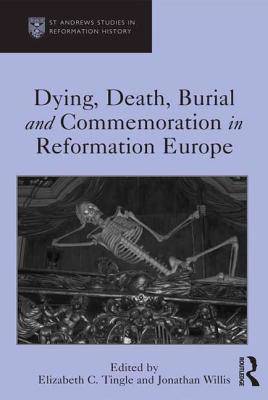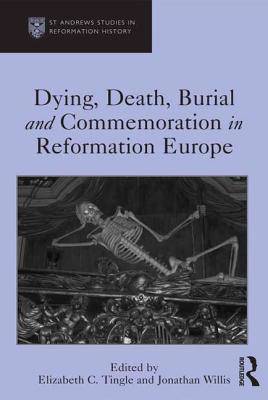
- Retrait gratuit dans votre magasin Club
- 7.000.000 titres dans notre catalogue
- Payer en toute sécurité
- Toujours un magasin près de chez vous
- Retrait gratuit dans votre magasin Club
- 7.000.0000 titres dans notre catalogue
- Payer en toute sécurité
- Toujours un magasin près de chez vous
274,95 €
+ 549 points
Description
In recent years, the rituals and beliefs associated with the end of life and the commemoration of the dead have increasingly been identified as of critical importance in understanding the social and cultural impact of the Reformation. The associated processes of dying, death and burial inevitably generated heightened emotion and a strong concern for religious propriety: the ways in which funerary customs were accepted, rejected, modified and contested can therefore grant us a powerful insight into the religious and social mindset of individuals, communities, Churches and even nation states in the post-reformation period. This collection provides an historiographical overview of recent work on dying, death and burial in Reformation and Counter-Reformation Europe and draws together ten essays from historians, literary scholars, musicologists and others working at the cutting edge of research in this area. As well as an interdisciplinary perspective, it also offers a broad geographical and confessional context, ranging across Catholic and Protestant Europe, from Scotland, England and the Holy Roman Empire to France, Spain and Ireland. The essays update and augment the body of literature on dying, death and disposal with recent case studies, pointing to future directions in the field. The volume is organised so that its contents move dynamically across the rites of passage, from dying to death, burial and the afterlife. The importance of spiritual care and preparation of the dying is one theme that emerges from this work, extending our knowledge of Catholic ars moriendi into Protestant Britain. Mourning and commemoration; the fate of the soul and its post-mortem management; the political uses of the dead and their resting places, emerge as further prominent themes in this new research. Providing contrasts and comparisons across different European regions and across Catholic and Protestant regions, the collection contributes to and extends the existing literature on this important historiographical theme.
Spécifications
Parties prenantes
- Auteur(s) :
- Editeur:
Contenu
- Nombre de pages :
- 242
- Langue:
- Anglais
- Collection :
Caractéristiques
- EAN:
- 9781472430144
- Date de parution :
- 18-03-16
- Format:
- Livre relié
- Format numérique:
- Genaaid
- Dimensions :
- 156 mm x 234 mm
- Poids :
- 526 g

Les avis
Nous publions uniquement les avis qui respectent les conditions requises. Consultez nos conditions pour les avis.






